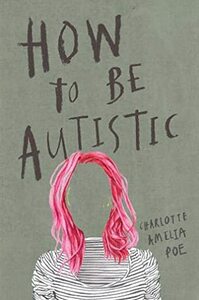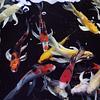You need to sign in or sign up before continuing.
Take a photo of a barcode or cover
shame they deadnamed the author in their biography
very well written, interesting throughout
very well written, interesting throughout
Graphic: Bullying, Vomit
Moderate: Mental illness, Suicidal thoughts
Minor: Suicide
One of the people I work with who is Autistic recommended this to me. Super easy read, enjoyed the conversational tone of it and felt like I learned quite a bit.
emotional
informative
inspiring
reflective
fast-paced
hopeful
informative
inspiring
reflective
sad
medium-paced
medium-paced
i’d say 2.5 rather than two i did like it but the last maybe 3 chapters i started to zone out and every time i thought i finished there was another chapter
I really enjoyed this and read it in one sitting (in the small hours of the morning thanks to insomnia). I struggle to understand why it has received many unfavourable reviews.
I love the frankness with which Charlotte Amelia Poe writes and found it utterly refreshing (perhaps because it is exhausting trying to navigate the over ‘fluffed’ intricacy of neurotypical language - I am also autistic if you hadn’t guessed). Poe says what they mean and means what they say and I adore this.
The book is short, snappy and to the point, sharing Poe’s journey as an undiagnosed autistic person, how that affected them and how they made art from it.
I saw myself in so many pages of this book: particularly the hauntingly familiar being-sick-at-school-and-refusing-to-eat-my-lunch-with-other-kids.
I also did not see myself in many parts of Poe’s story, and that is the beauty of being autistic. We are all unique and yet our experience of surviving in a world not made for us is still so valid.
I love the frankness with which Charlotte Amelia Poe writes and found it utterly refreshing (perhaps because it is exhausting trying to navigate the over ‘fluffed’ intricacy of neurotypical language - I am also autistic if you hadn’t guessed). Poe says what they mean and means what they say and I adore this.
The book is short, snappy and to the point, sharing Poe’s journey as an undiagnosed autistic person, how that affected them and how they made art from it.
I saw myself in so many pages of this book: particularly the hauntingly familiar being-sick-at-school-and-refusing-to-eat-my-lunch-with-other-kids.
I also did not see myself in many parts of Poe’s story, and that is the beauty of being autistic. We are all unique and yet our experience of surviving in a world not made for us is still so valid.
challenging
emotional
hopeful
informative
inspiring
reflective
sad
medium-paced
I've read a lot of books since my diagnosis and this one definitely had me tearing up at points, hearing about shared experience, particularly the pain of lost years. It was also great to read about the joy of fanfiction and the vital importance of that community. Incredibly relatable.
Often Disturbing but Ultimately Uplifting
Review of the Myriad Editions paperback edition (UK Sept 2019/N.Am. Jan. 2020)
Charlotte Amelia Poe won the inaugural Spectrum Art Prize (2018) for their video work How to be Autistic, the text of which is printed as the epigraph for this same-titled memoir.
Now 30-year-old Charlotte was not diagnosed as being on the Autism Spectrum until they were 21 years old. This was despite a young lifetime of anxiety disorders and social withdrawal which you would have thought would have provided some clues to medical professionals, who instead seem to have only prescribed a cocktail of various tranquilizer medications. The beginnings of the diagnosis came about through their mother's chance discoveries about the spectrum.
The memoir is told in flash backwards and forwards as it is grouped around various topics. Several of these are about the coping mechanisms and hobbies (including body modification and fan-fiction writing) that helped Poe to persevere and work towards becoming a writer, which was always their goal. There are already several zine and poetry collections listed on Goodreads in their name, so this memoir is not actually their first work. Some samples of the poetry are included throughout the memoir. A novel is already finished as well.
I wouldn't categorize myself as being on the spectrum, but rather that I am very OCD and introverted. Those sorts of characteristics did make me score rather high though on one of the older AQ (Autism Quotient) tests that Poe makes reference to in the memoir. This was something* through Wired Magazine from about 20 years ago. That made me feel especially empathetic to this memoir and several aspects and obsessions of Poe's personality. I encourage everyone to read this in order to better understand the world of the Autism Spectrum and indeed that of all spectrums e.g. gender, sexual, social, etc.
Trivia and Links
The Spectrum Art Prize ("Reflecting the creativity, diversity and excellence of artists with autism.") appears to be a biennial award as the 2nd Prize is expected to be announced in early 2020. Follow news about that here.
*You have to score it manually now, but it is still available at https://www.wired.com/2001/12/aqtest/ (I remember coming in at the low 40's out of 50)
Review of the Myriad Editions paperback edition (UK Sept 2019/N.Am. Jan. 2020)
"I chose the title because I thought it was funny. There's no one way to be autistic, there are millions. Every autistic person is their own person with their own identity, and I wanted to get that message across. My experience is my experience. It might not have been yours. But we might have shared some of it." - excerpt from pg. 127 of How to be Autistic
Charlotte Amelia Poe won the inaugural Spectrum Art Prize (2018) for their video work How to be Autistic, the text of which is printed as the epigraph for this same-titled memoir.
Now 30-year-old Charlotte was not diagnosed as being on the Autism Spectrum until they were 21 years old. This was despite a young lifetime of anxiety disorders and social withdrawal which you would have thought would have provided some clues to medical professionals, who instead seem to have only prescribed a cocktail of various tranquilizer medications. The beginnings of the diagnosis came about through their mother's chance discoveries about the spectrum.
The memoir is told in flash backwards and forwards as it is grouped around various topics. Several of these are about the coping mechanisms and hobbies (including body modification and fan-fiction writing) that helped Poe to persevere and work towards becoming a writer, which was always their goal. There are already several zine and poetry collections listed on Goodreads in their name, so this memoir is not actually their first work. Some samples of the poetry are included throughout the memoir. A novel is already finished as well.
I wouldn't categorize myself as being on the spectrum, but rather that I am very OCD and introverted. Those sorts of characteristics did make me score rather high though on one of the older AQ (Autism Quotient) tests that Poe makes reference to in the memoir. This was something* through Wired Magazine from about 20 years ago. That made me feel especially empathetic to this memoir and several aspects and obsessions of Poe's personality. I encourage everyone to read this in order to better understand the world of the Autism Spectrum and indeed that of all spectrums e.g. gender, sexual, social, etc.
Trivia and Links
The Spectrum Art Prize ("Reflecting the creativity, diversity and excellence of artists with autism.") appears to be a biennial award as the 2nd Prize is expected to be announced in early 2020. Follow news about that here.
*You have to score it manually now, but it is still available at https://www.wired.com/2001/12/aqtest/ (I remember coming in at the low 40's out of 50)
Autopathography by a young woman with several related disorders and autism with occasional resonant fragments.






